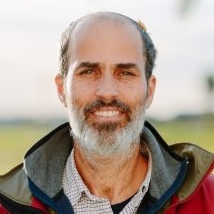
News

The Holy Day that makes us agents of change
RABBI GREG ALEXANDER
On the one hand, we can’t wait for the apples and honey, for sitting around the table with family and friends, and to hear the sound of the shofar. On the other hand, there is the serious side of Rosh Hashanah – the 10 days of Repentance and the Yom Ha-Din (Day of Judgement) side of our New Year.
“Who by Fire and Who by Water!” That’s not exactly champagne and Auld Lang Syne!
Transformation
This takes you back to what it is that you want to get out of this. If you are looking for time with family and nice food, you will not be disappointed. Add a brief drop-in to shul for the shofar and you’re set.
But you might want more. Deeper down there is a part of us that yearns for nothing less than a miracle, a revelation – a transformation in our lives. We have had enough with the “same old”.
We feel the weight of tiredness, lack of energy, lack of meaning. We want to bounce out of bed inspired. We want to feel the fullness of our strength and happiness.
And here is where Judaism gives us some great tools for achieving this transformation. In fact, the very name Rosh Hashanah, gives us some clues.
Shanah
Let’s start with the Hebrew word shanah (year), which is a marking of the cycle of the seasons. It’s linked to the word mishnah (repeating), which is the way a lot of rabbinic teachings were learnt – by repeating again and again.
This is also linked to Mishneh Torah, the rabbinic term for the last book of the Torah, D’varim or Deuteronomy, which was Moses’ repetition of the teachings of the previous 40 years.
So, Rosh Hashanah, the head of the year, repeats each September. It marks the beginning of another cycle of seasons to come. And the difference between a cycle and circle is that you don’t end up at the same point where you began – time has moved on and you’re (hopefully) a bit higher.
When you get to Rosh Hashanah, you are never the same person you were last year. The prayers are the same, the same shofar notes, the food might be too, but you are not.
Shoneh
And this brings us to another Hebrew link to Shanah. Shoneh (different) – we are different to who we were last year and we can make a difference. We can make a difference in the world or in our world. We can make a difference in who we are and who we want to be.
G-d created us as the Chosen People and the Choosing People, so that we could consciously choose to be better. Not that we don’t make mistakes – that’s a given. But that we choose to fix them – that’s the key to change.
Shinui
And that nicely sets us up for the last Hebrew word association – shinui, which means change.
If there is one things we know for sure, it’s that everything must change. I will change, you will change, the world is premised on change.
The gift the High Holy Days give us, is to actively, consciously choose the change that we would like to bring about in ourselves and the world around us.
Tools
Fortunately, our tradition knows that transformation is not easy and gives us a few tools to help us along. The one tool I mentioned already is the shofar, helping us with three calls beginning with T’kiah – a pure unbroken shout that calls out to our ears, to our soul to “Turn, turn!”
The High Holy Days are upon us and the year is about to begin. Sort out your stuff, get rid of the unwanted baggage of the year, of your life, and turn to who you are and who you want to be truly be.
And next the Sh’varim and T’ruah are broken sobbing cries that remind us that our hearts have been broken, that our lives are complicated and often cause us pain, and that is hard but we will be all right.
We realise that broken is healable, that pain can be a teacher, that life gives us what we need to be resilient, to survive and even to thrive.
We learn this because after the broken notes, the shofar always returns back to T’kiah, taking us from broken to whole and from pain to healing.
It takes us from crying to calling out – our soul calling out. Our soul sings with the shofar, calling us to return to who we are, to what we are and want to be.
Change now
Now, as we prepare for this Rosh Hashanah, let us take time to think about the changes we would like to see in our lives. What are the habits, the insecurities, the barriers to being that we would like to cast out, to dump and not shlep into the New Year?
Dump them
What are our goals and aspirations for the coming year? What do we want to do and what do we want to be? Write them down, put them on the fridge, and bring them with you to shul.
May this be a time of upcycling, of change, of making a change and making a difference. May we begin 5778 with our best intentions and may we see them fulfilled.
Shanah Tovah
Rabbi Greg is part of the rabbinic team at the Cape Town Progressive Jewish Congregation. Write to him at ravgreg@templeisrael.co.za




